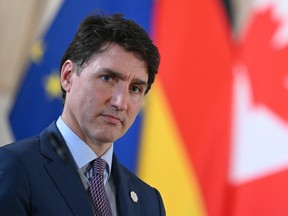Here is the rewritten article with improved formatting, grammar, and readability:
The World’s Leading Democracies are Struggling to Govern
The G7, a group of seven of the world’s leading democracies, is facing significant challenges in maintaining stable governments. The decline of the political centre, the rise of populist parties, and fiscal problems are all contributing to the instability.
In Japan, corruption scandals have weakened the LDP (Liberal Democratic Party), while Macron and Trudeau, leaders of France and Canada respectively, have lost their shine after many years in office. However, there seem to be two big overarching factors that are making it difficult for almost all G7 democracies to maintain stable governments.
The Decline of the Political Centre and Populist Parties
One major factor is the decline of the political centre and the rise of populist parties. This has made it increasingly difficult for governments to broker political compromises, as seen in France’s government being brought down after trying to cut spending and raise taxes to combat a budget deficit of 6% of GDP.
Fiscal Squeeze and Populism Feeding Each Other
Another significant factor is the fiscal squeeze created by slow growth, ageing societies, the pandemic, the financial crisis of 2008, and demands for increased defence spending. This has led to populism and fiscal problems feeding on each other, making it harder and harder to govern.
The Role of Trump and Musk
The return of Donald Trump to the White House is likely to contribute to the atmosphere of political instability across the G7. Rather than trying to help out the governments of his democratic allies, Trump and his current favourite, Elon Musk, seem to enjoy piling on the pain. The MAGA Republicans particularly like baiting centre-left leaders such as Trudeau, Scholz, and Starmer.
Trump has gone out of his way to humiliate Trudeau, referring to Canada as America’s 51st state and its prime minister as its ‘governor.’ Musk has made headlines across Europe by posting on X: ‘Only the AfD can save Germany.’ He has also held a well-publicised meeting with Nigel Farage, the leader of Reform in Britain — who made it clear that he is hoping for Musk’s financial backing.
The Impact of Trump and Musk’s Influence
Trump Republicans no longer regard traditional conservatives in Europe as their sister parties. Kemi Badenoch, the leader of Britain’s Tories, and Friedrich Merz, the leader of Germany’s Christian Democrats, can only look on in dismay as Trump and Musk reach out instead to the radical, nationalist right.
Christian Lindner, the leader of Germany’s struggling, pro-business Free Democrats, issued a plaintive plea to ‘Elon,’ informing him that the AfD was a ‘far-right extremist party.’ Touchingly, he seemed to believe this would put Musk off. Merz’s CDU is currently well ahead of the AfD in the polls for the German elections.
Conclusion
Far-right and populist parties across the G7 now clearly have a friend in the White House. Musk can help parties like the AfD and Reform with publicity and, perhaps, money. But his support could also backfire at times. Nationalist parties such as France’s Rassemblement National have a strong anti-American tradition and will be wary of looking like the tools of rich foreigners.
The G7 leaders must work together to address these challenges and find solutions to their fiscal problems and the rise of populist parties. The world is watching, and the future of democracy hangs in the balance.

